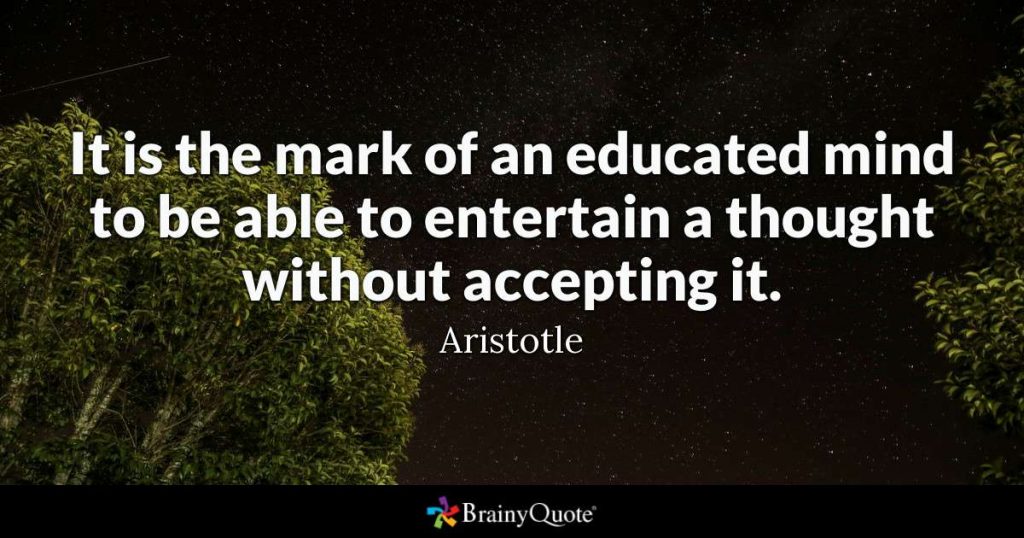Rand utterly shuts down intellectual curiosity. Objectivists will fight this tooth and nail. They’ll say they are open to new systems of thought–if they can be persuaded. They are insistent they are purveyors of truth and they update their thinking in the face of hard evidence.
Ok. Except Rand weights the very method in which you think as naturally biased against opposing ideas. It’s known that Rand had a list of books that Objectivists were forbidden to read in the name of “not sanctioning” them. This philosophy of reason is so fragile–its students can’t even hear opposing views?
But even if you doubt the history of this (of which gets sent down the memory hole and hard by Objectivists), you can read her own writing, out in plain view, to see that she shuts down intellectual curiosity. In her speech to West Point cadets, she encourages them to see investigating philosophy as similar to investigating an enemy in war. She said, “In your own profession, in military science, you know the importance of keeping track of the enemy’s weapons, strategy and tactics–and of being prepared to counter them. The same is true in philosophy: you have to understand the enemy’s ideas and be prepared to refute them, you have to know his basic arguments and be able to blast them” (8).
She places suspicion in her adherent’s hearts. In the face of new ideas, they are there, by default, to judge. Not to absorb, ponder, and possibly learn. Is it a “great intellectual achievement” or an “intellectual crime”?

Ultimately, the practical effect of this is that Objectivists judge everything, immediately. They are on guard especially against anything that challenges Objectivism.
In “Philosophical Detection,” Rand elaborates on this view; again that the best way to approach philosophy is “like a detective story.” She says again that we are here to find truth versus falsehood. But in the same paragraph, encouraging a detective-like approach, she vouches for her very philosophy and way of thinking in approaching other systems of thought. She writes,
“A philosophical detective must remember that all human knowledge has a hierarchal structure….”
This is a hell of a statement. A lot of people, especially in education, would disagree. It weights a person’s “detective” skills towards Rand’s system itself, which is hierarchical in nature. She continues that one must find the “fundamentals” and that “In philosophy, the fundamentals are metaphysics and epistemology.” This weights it towards Rand’s way of thinking. Her “metaphysics and epistemology”–foundational tools of reason, the very tools to discover truth and falsehood–say directly that “reason is man’s only method of attaining knowledge.” This explicitly means that intuition is worth nothing. She shuts down entire areas of psychology by doing this.
The main issue I run into with Objectivists constantly is that they are convinced that “reason” is just the tool to discover truth versus falsehood. But Rand doesn’t just use “reason” this way. Reason overrides emotions in Objectivism. Rand defines reason as both the tool to discover truth and as a way to be as a human, in all waking hours of one’s life. If I could detangle these two things, the tool from the way to be, I would actually get somewhere with Objectivists.
For now I’ll ask you: are you sure your very tools to gather knowledge are the right ones?
Leave a comment